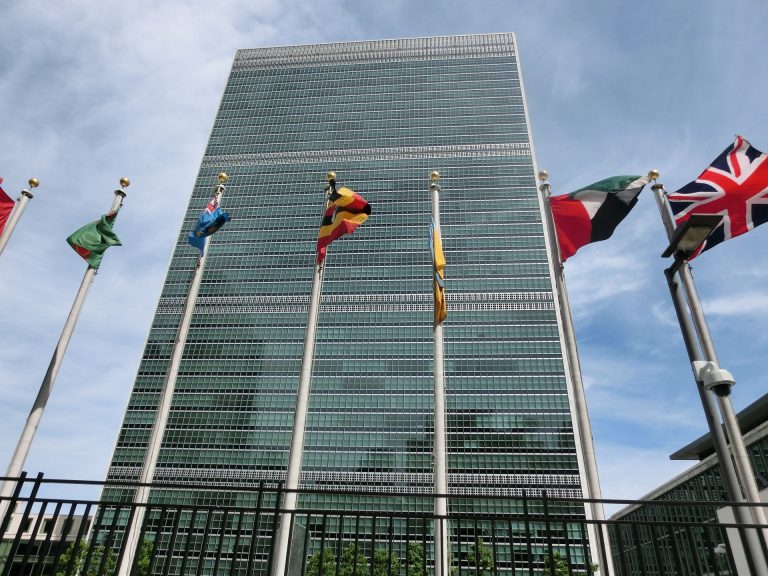Representatives from Washington and Taipei recently met to discuss the possibility of Taiwan expanding its participation in the United Nations bloc along with other international forums. China has been blocking Taiwan’s participation in the United Nations arguing that the island is only a part of the mainland and thus does not deserve separate recognition.
A virtual meeting, which took place on Oct. 20, saw the participation of officials from the Taiwan Ministry of Foreign Affairs and the U.S. Department of State.
“The discussion focused on supporting Taiwan’s ability to participate meaningfully at the UN and contribute its valuable expertise to address global challenges, including global public health, the environment and climate change, development assistance, technical standards, and economic cooperation,” the U.S. State Department said in a statement on Oct. 23.
Taiwan used to be a member of the United Nations under the name Republic of China (ROC). But, in 1971, it was voted out and the People’s Republic of China (PRC) took over. In a speech on Oct. 25 to commemorate the PRC joining the United Nations, Xi insisted that Beijing will always be a “protector of international order” and “builder of world peace.” Xi’s speech came after China sent a record number of planes to intrude into Taiwan’s Air Defense Identification Zone (ADIZ) in October.
Earlier this month, a Taiwanese politician called out the island’s exclusion from the United Nations as unfair. This attracted criticism from Beijing, with a Chinese foreign ministry spokesperson insisting that General Assembly Resolution 2758 is proof of Taiwan being ineligible to be a part of the UN on its own.
Success
You are now signed up for our newsletter
Success
Check your email to complete sign up
The resolution recognizes the PRC as the “only legitimate representative of China to the United Nations.” However, some American officials are not in support of such a view.
“The People’s Republic of China has misused Resolution 2758… Taiwan being blocked for participation in nearly all of the UN activities creates an immense cost, not just for Taiwan, but I think to UN members as well,” Rick Waters, the U.S. State Department’s deputy assistant secretary for China, Taiwan, and Mongolia, told Nikkei Asia.
Relations between the United States and Taiwan have strengthened in recent years while ties between Washington and Beijing have became increasingly heated. President Joe Biden rattled CCP officials when he recently claimed that Washington would support Taiwan in case Beijing invades the island. The White House later went back on Biden’s statement, saying that America’s “strategic ambiguity” policy towards Taiwan has not changed.
“We urge the US to earnestly abide by the one-China principle and stipulations in the three China-US joint communiques, be prudent with its words and actions on the Taiwan question, and avoid sending wrong signals to the ‘Taiwan independence’ separatist forces, lest it should seriously damage China-US relations and peace and stability across the Taiwan Strait,” Chinese foreign ministry spokesperson Wang Wenbin said in response to Biden’s remarks.
In an interview with the South China Morning Post (SCMP), Shi Yinhong, professor of international relations with Renmin University, stated that Biden is following the Trump administration’s policy of boosting official ties with Taiwan. But with China’s international influence growing, the possibility of Taiwan returning to the United Nations is an uphill battle.
“The United States hopes that through long-term activities, Taiwan’s international space will gradually expand and China’s international influence on the Taiwan issue will face setbacks… The United States and its allies, in terms of military, political, economic, and diplomatic measures to support Taiwan, may have a relatively large impact,” Shi said.














